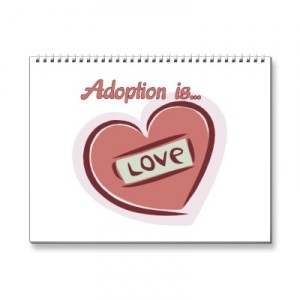When a teenager is faced with an unplanned pregnancy they may feel they have few options. This article discusses adoption options for pregnant teens including domestic adoption, foreign adoption, and open or closed adoptions. Also, tips on choosing an adoption agency.
If you are interested in adopting, you have a number of options. Deciding how to adopt is up to you, and a very personal decision that depends on what you are most comfortable with. Here are some of the adoption options you will have, and the decisions you will have to make:
Domestic adoption or intercountry adoption
The first adoption decision you will have to make has to do with whether you want to adopt a child from this country, or whether you want to adopt from another country. There are pros and cons associated with each. A domestic adoption is generally less expensive, but the waiting time can be unpredictable, especially since in the U.S. birth parents are often more involved in the process.
With an intercountry adoption, you usually have a more predictable wait time, since birth parents are often not part of the picture. Many countries require that children be considered orphans before they can be adopted. This means that the parents must either be deceased, or have abandoned the children. This can eliminate some of the unpredictability that comes when dealing with birth parents. However, immigration papers, and other documents, have to be in order for international adoptions.
Infant or child adoption
Another decision that has to be made is whether or not you will be adopting an infant or a child. Many parents prefer to adopt infants, but the wait time can be as long as two years in this process. On top of that, many birth parents are involved, and you may have to be specially approved in an infant adoption. Since infant adoption is so popular, it is also more expensive, and can present its own challenges.
If you are interested in helping an older child, foster care adoption can be a good option. Many children have been abandoned, have no living relatives, or have been removed from parental custody due to abuse or other problems. These children often need a great deal of love and care. Foster care adoption can be a way to get a child quicker, and to help someone in need of it. You should realize, though, that there are special challenges associated with foster care adoption. Instead of raising a healthy infant “from scratch”, your patience will be required as you strive to help a child that has emotional, mental and possibly physical baggage and particular needs.
You can also choose special needs adoptions. This adoption option revolves around children with particular physical or mental disabilities. While this can be challenging, it is also quite fulfilling. If you have the patience, you can help a child with very real special needs.
Choosing an adoption agency
If you are adopting a child from the welfare or foster care system, you will generally work with a state government agency for the adoption. Otherwise, you have other adoption options:
- Licensed private agency: This is an agency that is properly licensed through the state to help with adoptions. You pay a fee, and the private agency helps you find a match with the others using its service.
- Unlicensed agency: In some states, unlicensed agencies can help aid in adoption. While you might pay less in some instances, the risk of problems is greater, since there isn’t as much oversight from the government.
- Attorney: If you don’t want to work with an agency, you can do an independent adoption with the help of an attorney. An attorney who can guide you through the process can be valuable. In some cases, such attorneys must have specific certification. This method involves the greatest interaction between adoptive and birth parents.
Open or closed adoption
Finally, you need to decide whether you want to participate in an open or closed adoption. In an open adoption, you retain contact with the birth parents, and the child can interact with the birth parents if they wish. A closed adoption means that the birth parents wish to remain anonymous, and it can be difficult for the child to interact. Some parents find open adoptions promote a healthier view of being adopted, while others find that closed adoptions, where communication is cut off, prevents problems.
In the end, what you choose is up to you. Many adoptive parents like to consider their adoption options, and then make a decision based on how they think they can best impact a life for the better.
